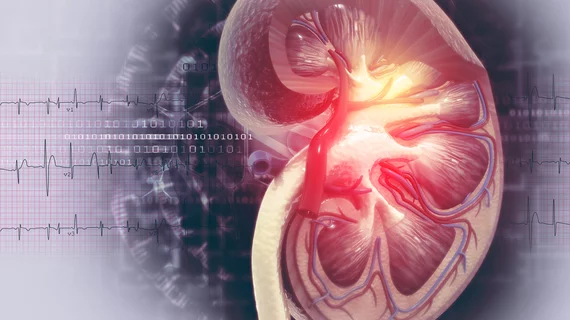SNMMI 2020: Imaging highlights connection between heart and kidneys in heart attack response
Researchers have used whole-body PET imaging to highlight how the heart and kidneys respond together following a myocardial infarction (MI), sharing their findings at the Society of Nuclear Medicine and Molecular Imaging’s 2020 Annual Meeting.
The researchers noted that their study marks the first time medical imaging has been used to capture this specific response. They turned to 68Ga-pentixafor PET, imaging a total of 65 mice and tracking how each one responded to an induced MI after one day, three days, seven days and six weeks. A “clear correlation” between the responses of the heart and kidneys was detected and then confirmed using autoradiography.
In an SNMMI news release, Rudolf Werner, MD, PhD, a resident in the department of nuclear medicine at Hannover Medical School in Germany, said this work “provides an impetus for the pursuit of systems-based multi-organ imaging to investigate systemic response to focal injury.”
“Assessment of inflammation after myocardial infarction is beginning to be evaluated in clinical populations,” he added. “With the growth of long-bore cameras with larger fields of view, the concept of multi-organ imaging will expand substantially in the next years.”
The abstract to the team’s work is available here.

